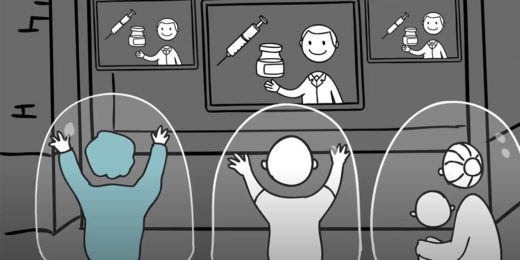A public health program in India improved maternal and child health initially, but was at risk of leaving behind disadvantaged participants when it expanded.
Category: Wellness
Breaking down diabetes: A quick guide to the plethora of medications
As part of the series,Breaking down diabetes, physician Randall Stafford provides a straightforward guide to medications that can treat Type 2 diabetes.
Breaking down diabetes: Drugs for diabetes, starting with the best — metformin
Metformin is physician-researcher Randall Stafford's go-to drug for diabetes. He explains why in this installment in the series, Breaking down diabetes.
The power of animation: Two videos offer messages of hope during the pandemic
Two animated videos from Stanford Medicine aim to help people around the world who are struggling to cope during the COVID-19 pandemic.
How stress affects your brain and how to reverse it
Stress in 2020 seems worse than ever. Stanford's Andrew Huberman discusses ways to reduce stress, such as different breathing patterns.
Meditation can counter mental stress on college campuses, experts say
Practicing meditation can alleviate mental stress and anxiety on college campuses, especially during the pandemic, Stanford experts say.
Stanford physician pens children’s book on breathing
After noticing that young patients know little about their bodies, Stanford physician Diana Farid wrote a children's book explaining how our lungs work.
What to do if you test positive for COVID-19
From how to quarantine to how to monitor your oxygen levels, a Stanford physician offers tips on what to do if you have COVID-19.
Body image: ‘We can have a full, meaningful life in the bodies we have.’
Body image is a key part of well-being, yet many of us have a conflicted relationship with our bodies. A Stanford Medicine psychologist offers guidance.
Assault during pregnancy boosts risk of poor infant health
When pregnant women are assaulted, their babies are more likely to be born prematurely and to weigh less, Stanford Health Policy research shows.
Cell growth clue could lead to new breast cancer treatments
Stanford stem cell biologists have found a way to block a signal that causes growth of breast cancer cells, opening potential for new treatments.
Antibiotic resistance and other things you need to know about UTIs | Understanding UTIs, Part 7
This final post in the Understanding UTIs series addresses antibiotic resistance and provides a wrap-up of key points to remember.
Men can get urinary tract infections | Understanding UTIs, Part 6
This sixth post in the Understanding UTIs series clarifies that anyone — even men, children or pregnant women — can get a urinary tract infection.
Some anxiety, insomnia drugs raise risk of ectopic pregnancy
Taking benzodiazepines within 90 days before conception raises the risk of a life-threatening condition known as ectopic pregnancy, according to a study.
Proximity to oil and gas wells linked to prematurity risk
Living near an oil and gas well in California's San Joaquin Valley during pregnancy is linked to increased risk of spontaneous preterm birth, finds Stanford study.
Treatment options for urinary tract infections | Understanding UTIs, Part 5
The fifth post in the Understanding UTI series outlines the different types of medications for UTIs, including antibiotics and drugs for pain relief.
















